
(This story first appeared in the Grape Wall newsletter. Subscribe for free here.)
I know few people who are aficionados of historical staircases, berets *and* fine wine. In fact, I know just one, Patrick Cranley, who has lived in Shanghai for a quarter-century, is a past ambassador for Napa Valley Vintners and is a co-organizer of the Shanghai Wine Society. In the Q&8 below, I asked him about all things Shanghai and wine. (Check out more Q&8s here.)
1 How did you get interested in wine and ultimately in the Shanghai Wine Society?
I became interested in wine in university during a “semester abroad” program at the University of Dijon. I continued to learn in my twenties and then got more serious after I arrived in Shanghai in 1997. I joined the Shanghai Wine Society in 2007, two years after its founding.
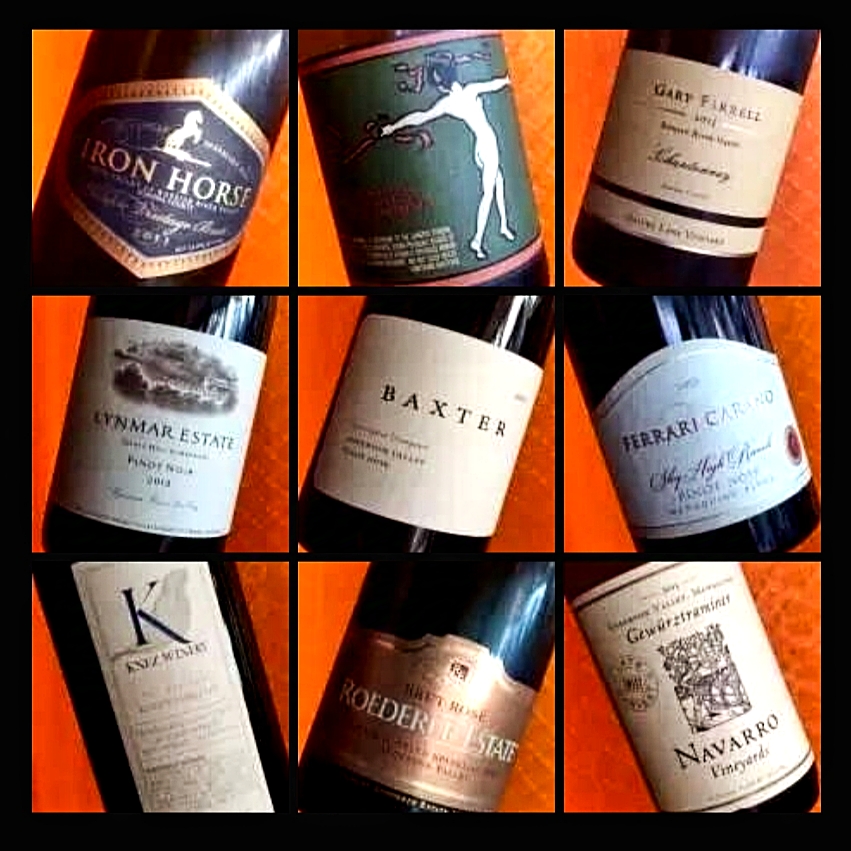
2 Shanghai Wine Society has hosted so many tastings and dinners. What three stand out as especially memorable?
Oh, honestly, there have been so many memorable events! To name just a few, though:
The Rosé Dinner at the Radisson Collection Xing’guo Hotel’s wedding pavilion in May of 2021. Not only did we enjoy a dozen excellent rosés from all over the world, but the atmosphere was incredible. The happy couple who used that enormous tent in the expansive garden left all the flowers that decorated their wedding ceremony.
The Anderson Valley and Russian River Dinner in June of 2016. This was a special dinner because we enjoyed ten different “suitcase wines,” brought back from visits to the wineries in northern California and thus very rare in China. Also, it was held at the late, great Kathleen’s Waitan restaurant on a beautiful early summer’s day. Beautiful wines, knowledgeable people and gorgeous views over the mighty Huangpu River. Memorable!
The Hungarian Dinner in February of 2022. We had an enormous response for this dinner—50 guests—and were able to book out the entire La Scala restaurant at the Sukhothai Hotel. The food there is really outstanding, and the sommelier at the time was a Hungarian fellow who was enormously supportive of the evening’s theme. A tremendous night!

3 You are known for promoting California wine, notably from Napa Valley. What’s the general attitude among Chinese consumers toward these wines?
I served as the “China Ambassador” for the Napa Valley Vintners trade association for five years, but I am quick to advise that I love wines from many wine regions in the United States!
Chinese consumers are favorably disposed toward American wines, but they believe that the range of U.S. wines available in China is limited, and that they are expensive. The former point is true, and due primarily to the fact that the vast majority of wine made in America is consumed there—unlike all of the other major wine-producing nations in the world, which export a large proportion of their output. On the latter point, well, we have import duties and trade wars to thank…
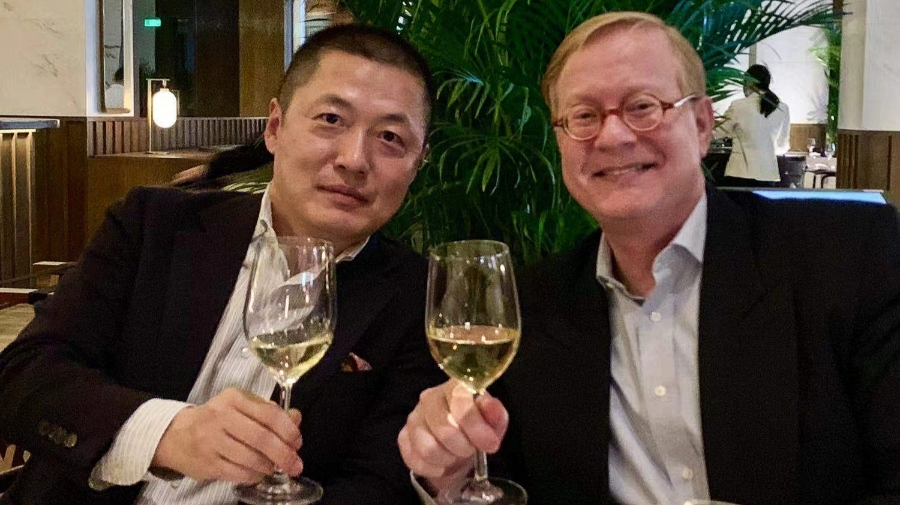
4 You’ve witnessed the rise in choice and quality of Chinese wines. Say a regular wine drinker is a newcomer to local wines and wants three bottles as a starting point. What would you suggest?
That’s easy! Grab a Chardonnay from Grace Vineyards in Shanxi, a Cabernet or Marselan from Silver Heights in Ningxia, and a Riesling—or anything, really—from Domaine Franco Chinois or Canaan Vineyards from Hebei. These wines will convince any newcomer to the Chinese wine scene.
5 Shanghai is widely considered as China’s most sophisticated wine city. How has the scene changed during the past decade and what are the trends of this past year or two?
Shanghai people believe in “joie de vivre”— perhaps best translated in contemporary terms as “work-life balance”!—and they have the purchasing power to indulge. Enjoying a glass of wine at dinner is considered a mark of cool sophistication here, among both young people and senior executives. But the pandemic and slower economic growth has put a big dent in discretionary spending on many fronts, including wine.
A promising trend, however, is the number of small wine bars that are popping up in this entrepreneurial city “like mushrooms after a spring rain”, as they say.
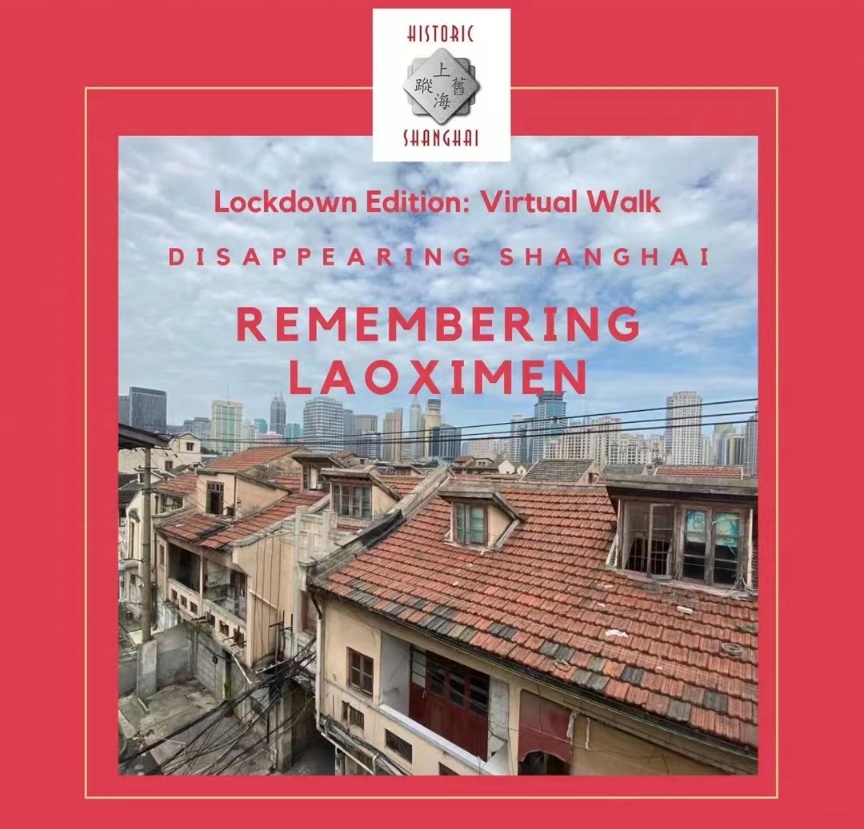
6 You are also a co-founder of Historic Shanghai. I wonder if you have come across any curious anecdotes about Shanghai’s wine past.
There is no shortage of stories about the boozing, gambling, whoring and opium-smoking that went on in Old Shanghai, but precious few, sadly, about the appreciation of fine wine. We know that wine was imported into Shanghai, but how it was consumed and what antics followed are lacunae in our knowledge of Shanghai history.
Caldbeck & McGregor, a Scottish concern that supplied many of Shanghai’s bars, clubs and hotels, brought in Champagne Pommery and various Sherries and Ports. French importer Rondon & Co. distributed Calvet wines from Bordeaux and Burgundies made by Bouchard Ainé. One could source Charles Heidsieck Champagnes from Racine & Compagnie. Another French company, Olivier-Chine, imported mostly industrial products, but also brought in Veuve Amiot Champagne. All had offices on or near the Bund that still stand today.
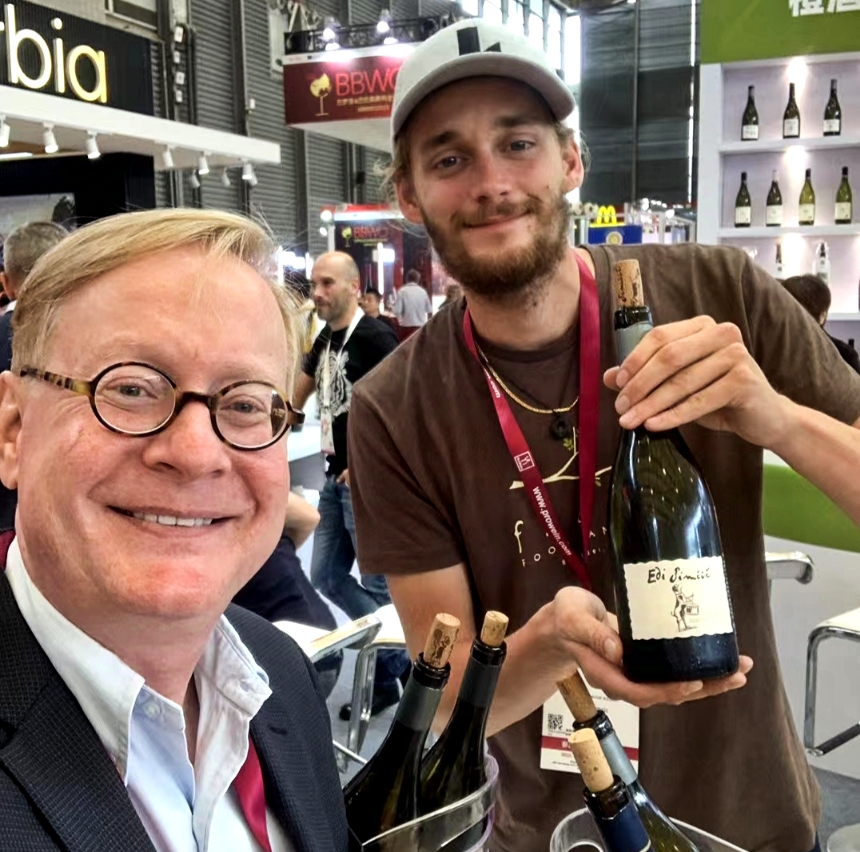
7 There is plenty of handwringing about the state of China’s wine market, given years of falling imports and local production. What do you think the industry needs to do to reverse course?
First, I’d say that domestic overproduction is simply not healthy—just ask the Australians, the French and the Spanish, who are now pulling out vines!
Second, high tariffs are terrible for consumers, and also encourage domestic overproduction and discourage product quality.
And last, I would say that wine education is really important for growing the number of wine lovers in China, and all over the world. Huge shout out to the many hard-working, dedicated wine educators in China. They are heroes.
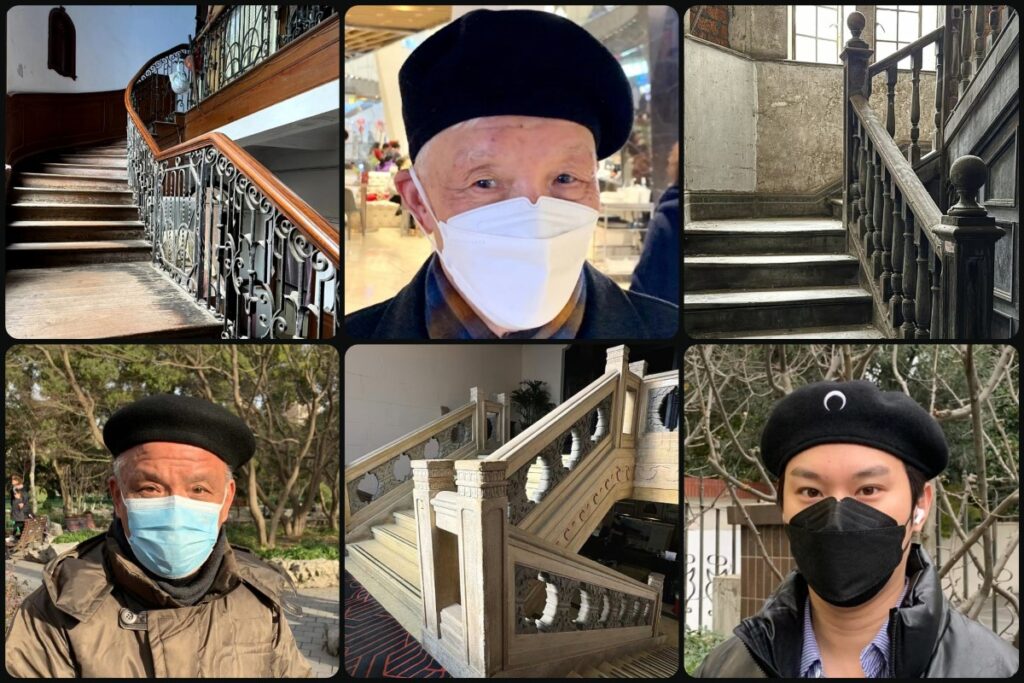
8 You are famous for documenting both Shanghai’s staircases and its beret-donning citizens. Can we get a photo of you wearing a beret and standing on a favorite staircase while holding a favorite wine!?
Of course! But this will have to wait until I get back to Shanghai. [He did, in fact, return!–Ed]

Grape Wall has no sponsors of advertisers: if you find the content and projects like World Marselan Day worthwhile, please help cover the costs via PayPal, WeChat or Alipay.
Sign up for the free Grape Wall newsletter here. Follow Grape Wall on LinkedIn, Instagram, Facebook and Twitter. And contact Grape Wall via grapewallofchina (at) gmail.com.

Leave a Reply
You must be logged in to post a comment.